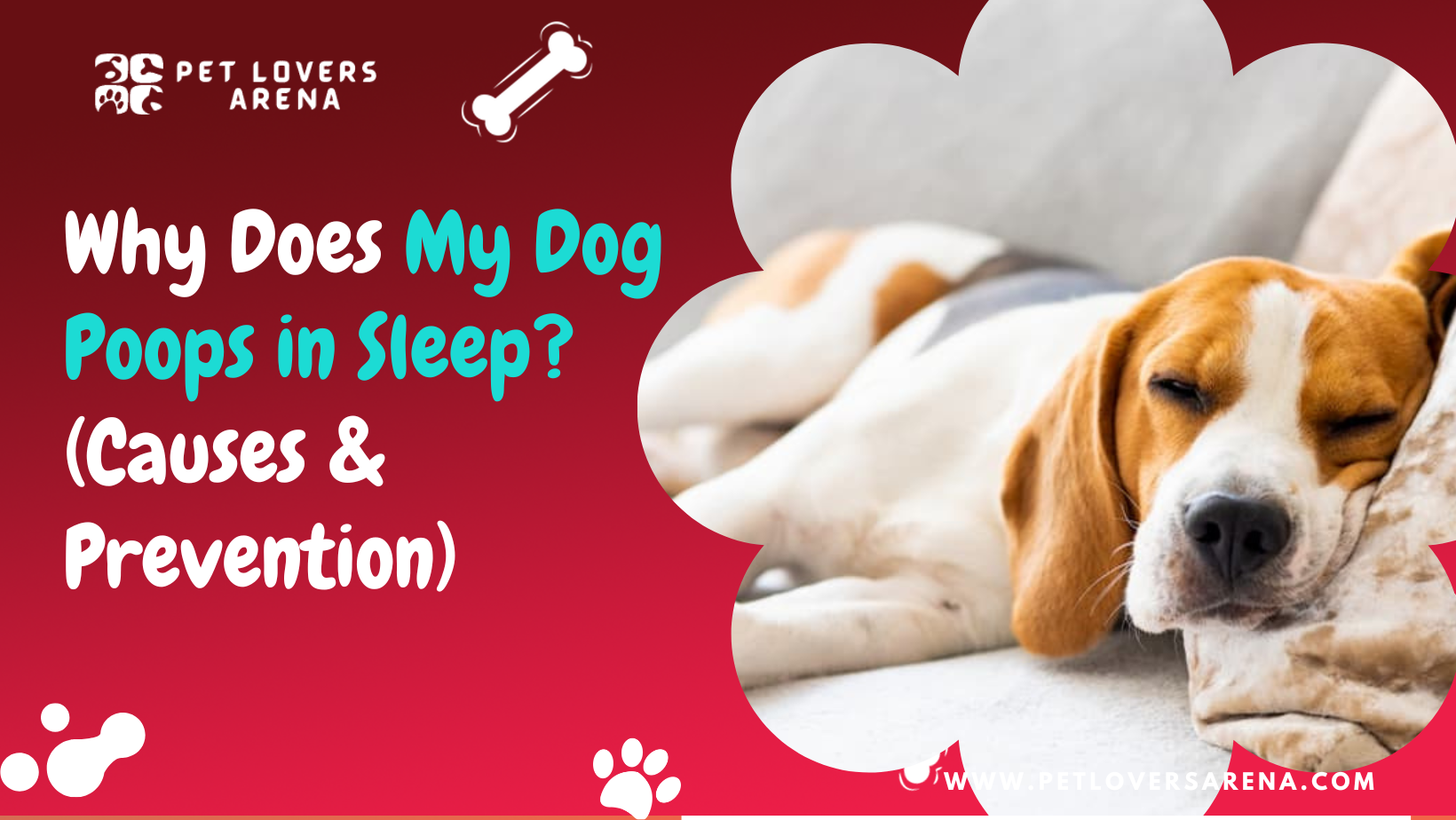Our little and not-so-little furry friends can get difficult to handle at times. To say that they are always mischievous would not be entirely accurate. But, at times, their actions and ways are beyond their control.
Yes, in some cases, dogs poop while sleeping, even when they are aware of their actions midway. However, in most cases, they have little to no idea if they poop in sleep. The situation and causes vary from dog to dog, as do the preventions.
All dogs experience incontinence, yet they can figure out when and where to relieve themselves from an early age. If you have a puppy, the issue can be that they haven’t yet learned to control their urination or defecation.
Therefore, it is best to start their training as soon as possible.
Why Does My Dog Poop In Sleep?
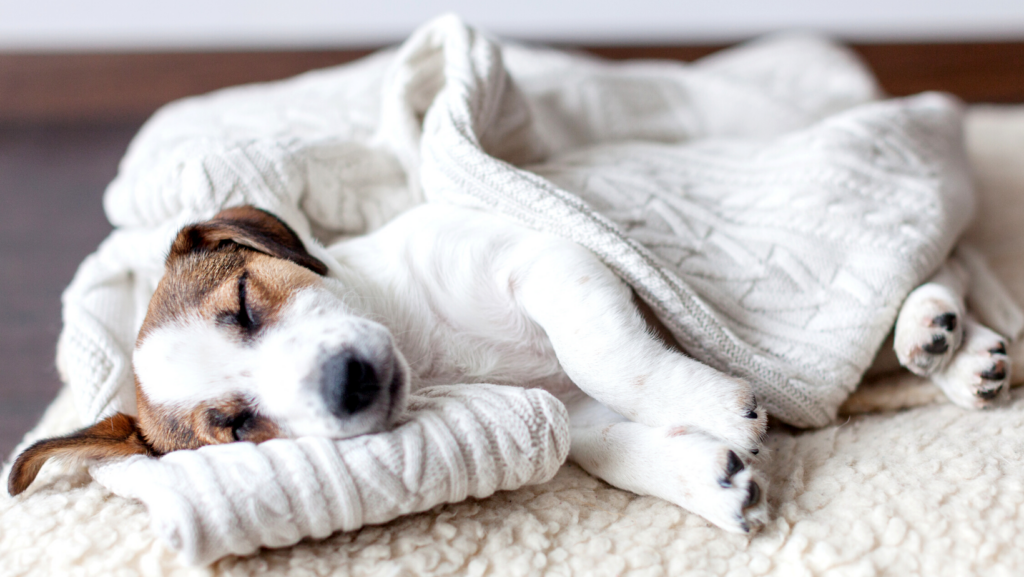
Until a particular training stage, it is acceptable behavior for a dog to poop while they are asleep. However, if dogs continue to poop while they sleep, even after their training period is over can be a cause of concern.
You need to monitor your dog’s wellness to ensure they are not showing any signs of a medical emergency. If that happens, consult your dog’s vet and seek immediate medical care.
1. Sphincter Incontinence
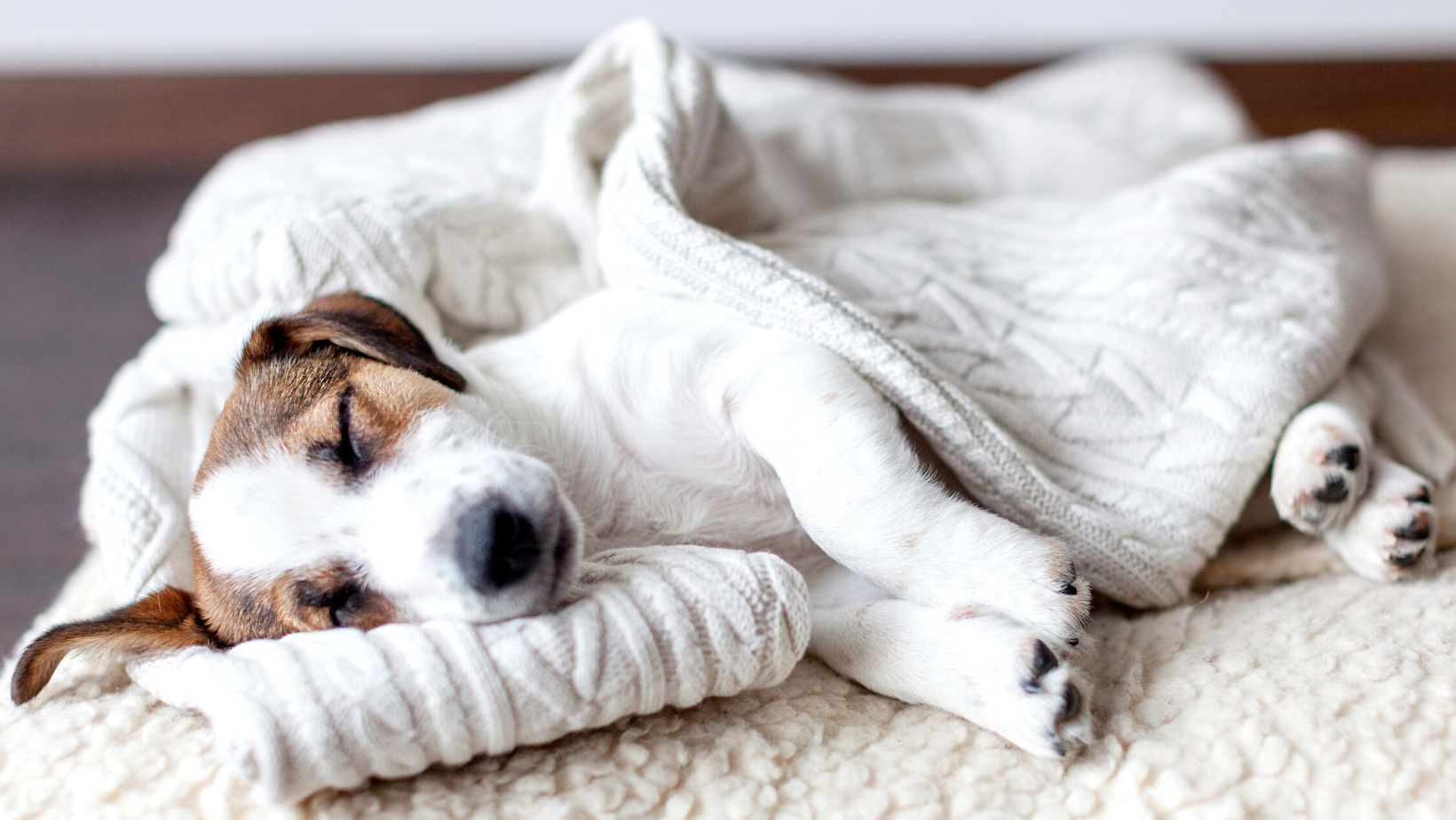
There are many reasons your dog poops in their sleep. One of the most common reasons is Sphincter incontinence, where solid feces bits that could be logs or balls can be noticed. The second type is reservoir incontinence, where there is anal leakage.
A condition where your pooch passes completely formed feces while sleeping may have sphincter incontinence. The anal sphincter is a circular muscle at the exit of the anus. It stays closed until it’s time to release poop. Then it relaxes, opening the anus to allow the poop to pass through.
At the end of the anus is a muscle called the anal sphincter, which remains shut unless the poop needs to pass. When you pooch poop, it relaxes, allowing it to pass.
The sphincter muscle can’t contract properly when sphincter incontinence develops. The muscle cannot adequately retain the stool when it cannot contract. Poop will often slide out without the dog noticing.
2. Fecal Incontinence
Reservoir incontinence can also cause dogs to poop while they sleep. Poop is stored in the anal reservoir. As mentioned earlier, brain or nervous system issues might cause fecal incontinence. Fecal incontinence is essentially a symptom of any rectal condition.
3. Age
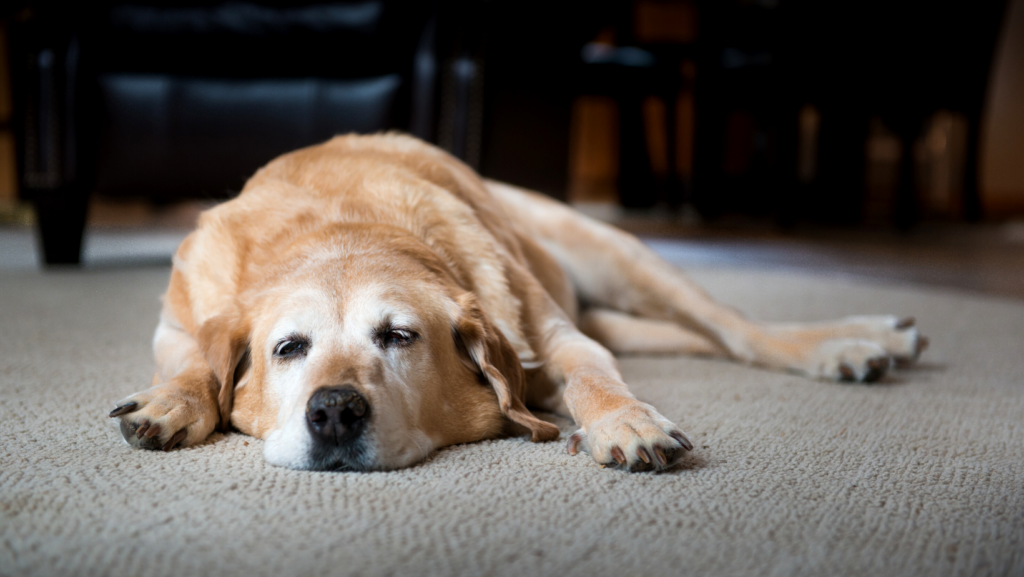
Age is another crucial factor that can weaken the sphincter muscle in dogs. As a result, it gets difficult for them to hold and manage their poop for a long time, which can lead to frequent incidents of them pooping while they sleep.
Similarly, younger puppies poop as they sleep because it gets rather tricky to manage poop with them. Puppies younger than three weeks cannot handle their poop and start pooping themselves. It takes them time and practice to comprehend the process of taking a poop.
Also Read: How To Potty Train A 6 Week Old Puppy?
4. Neurological Imbalance
As with humans, some issues with nervous functioning can also be why your dog might be pooping in their sleep. The brain nerves control the sphincter muscle, and the brain tells the muscles to relax the anal sphincter when the dog is ready to poop, allowing the poop to be out.
Common causes of fecal incontinence include spinal cord damage, which attacks the brain or nerves—pooping. At the same time, asleep can also be a symptom of neurological problems that damage your pet’s nervous system or motor abilities.
You’ll notice additional problems with your dog if the cause is neurological or nervous-related. They might also have issues with bladder control. As a result, they’ll become uncoordinated, develop a limp, or become paralyzed.
5. Fear
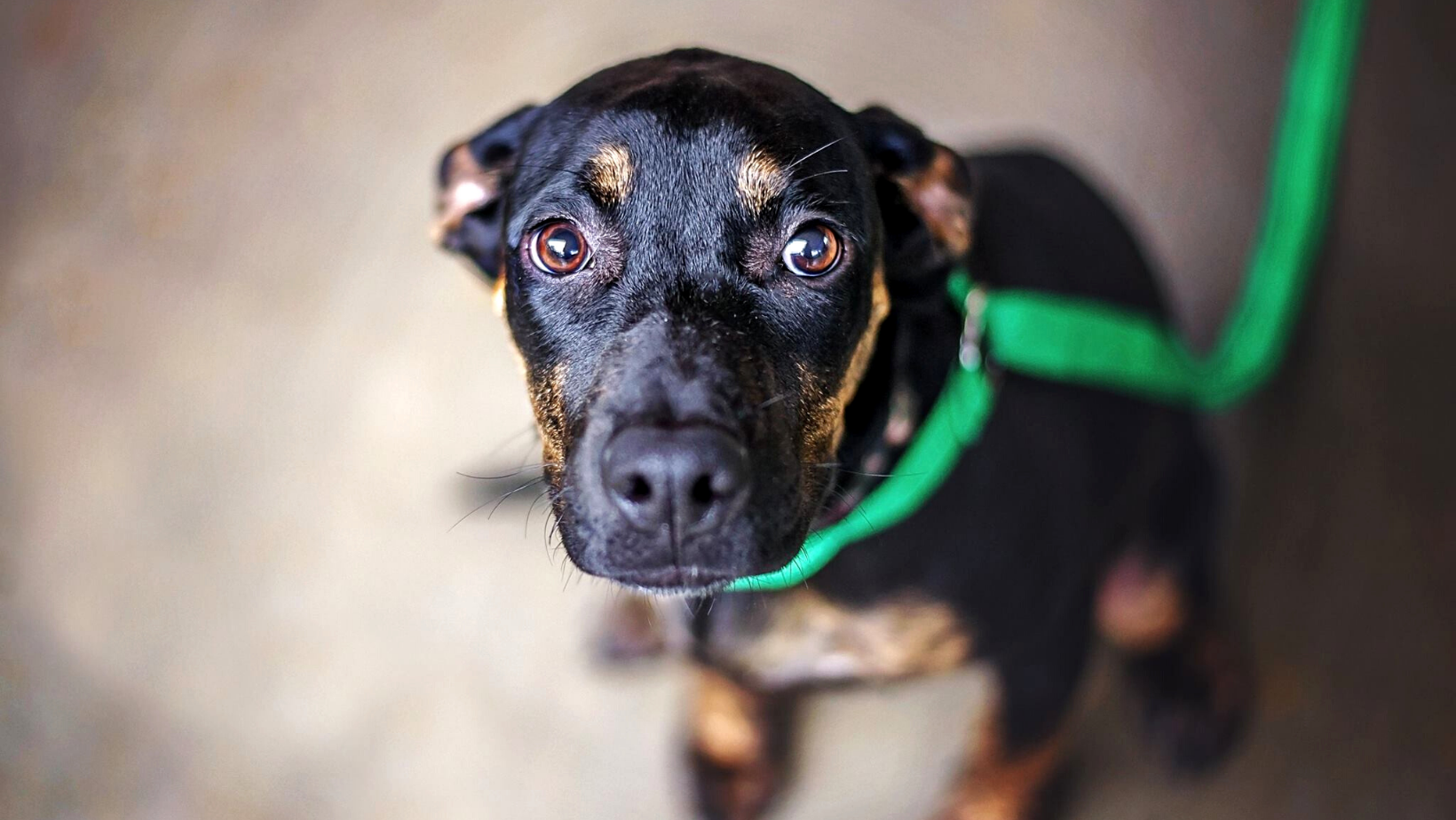
It is not just humans, but fear can also cause “fear poop” in dogs, where your dog gets scared and ends up pooping unexpectedly, even when asleep.
It happens because the body releases a lot of serotonin to calm down when it experiences intense fear or worry.
The gut contains a significant number of serotonin receptors. It causes cramps when serotonin levels are too high. Your dog may poop unintentionally as a result of this cramping.
They might poop if a loud noise or other startling event awakens them. Due to the elevated serotonin, people may also urinate. At the same time, they are asleep if they are experiencing significant levels of stress or anxiety.
6. Trauma
Another factor contributing to the sphincter’s dysfunction is an anal mass or trauma. It is an extension o the fear that the dog has been in trouble for a long time. For example, a tumor or a severe injury from an accident may lead to this dysfunctionality.
Anal gland disorders also impact the sphincter. For example, the dog’s anal glands might get infected or enlarged, which affects how well the sphincter works.
7. Diarrhea
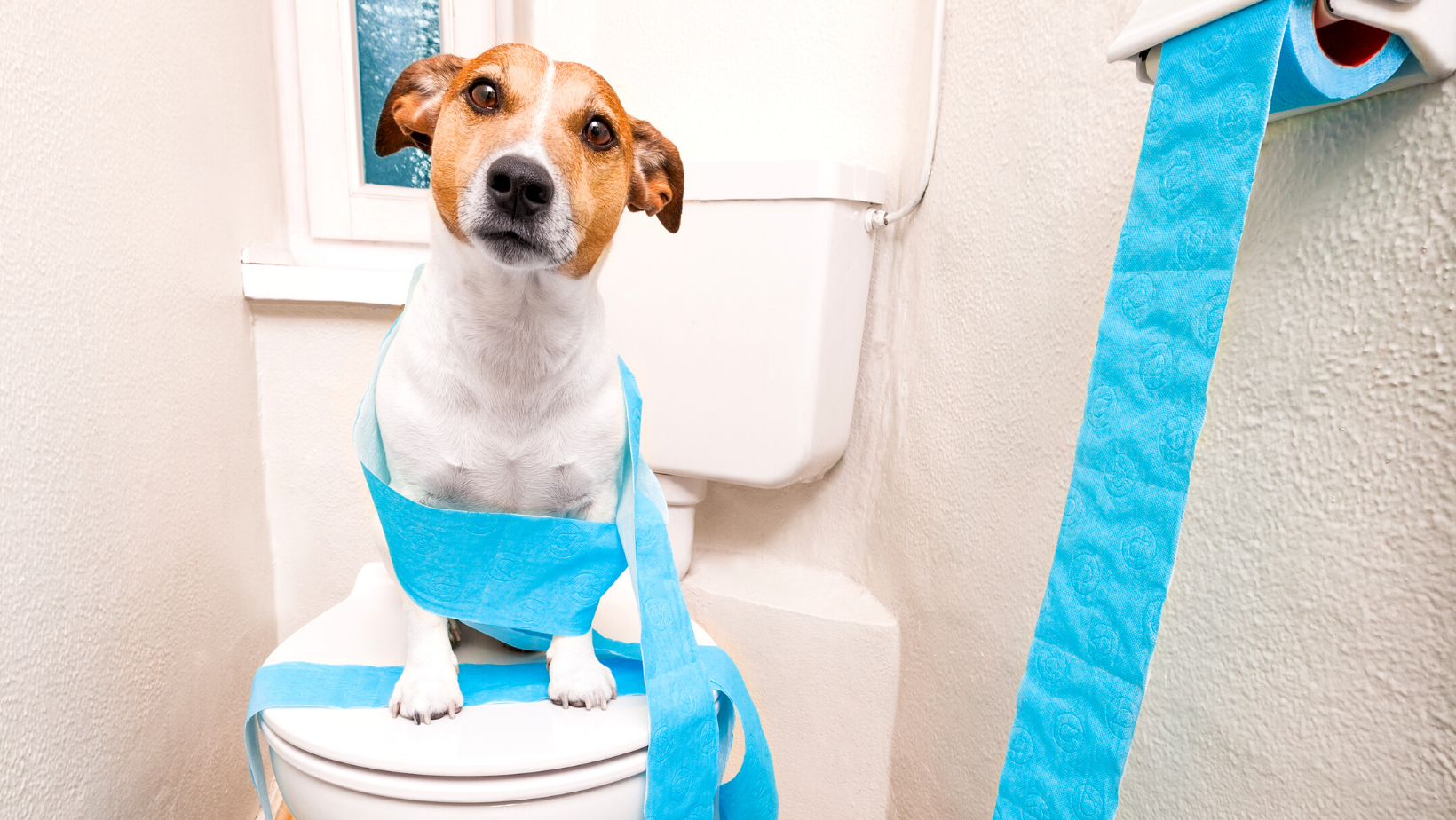
Last yet, the most common reason has to be diarrhea. Your dog will have an urgent urge to poop and frequently lose control of its waste if they have diarrhea.
This problem also affects people. We’ve all hurried to the restroom with a spell of diarrhea, let’s face it. Sometimes you arrive in time, and other times you have to clean up and act as though nothing happened.
Diarrhea is an after-effect, not an illness, so getting your dog tested for any is best. It usually results from food passing through the digestive tract too quickly, which prevents the water from being absorbed.
The frequent inflammation of the big intestine complicates the issue. The sphincter finds it harder to keep the excrement in since it is liquid and softer. Additionally, intestinal inflammation might result in cramping, forcing poop out without your dog’s control.
8. Gas
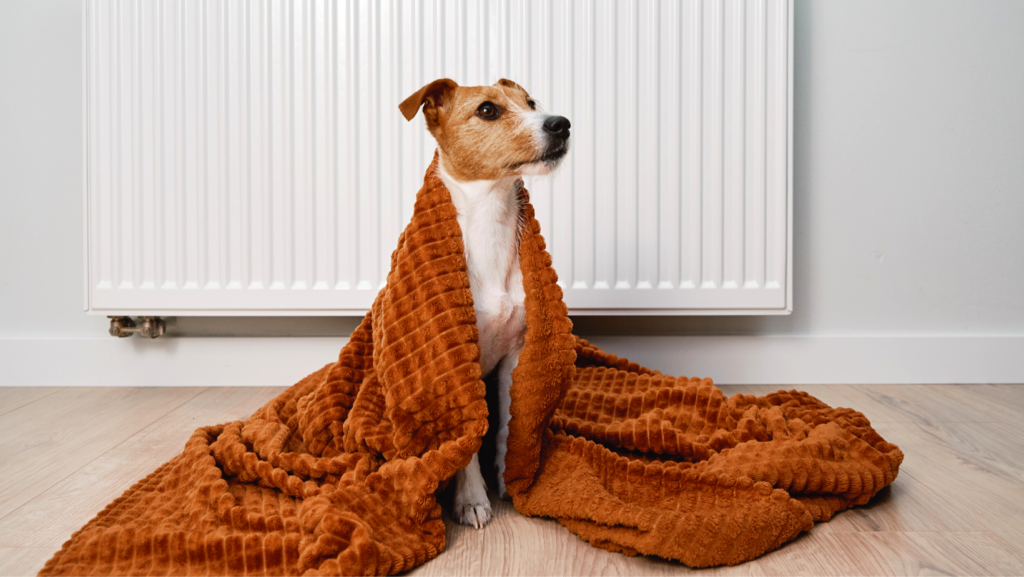
Similarly, Issues with gas and bloating after a heavy meal or indigestion can also cause the same. Bloating may happen if your puppy eats, drinks, and has gas in his stomach before ingesting GDV (gastro dilation volvulus).
Too young or too old dogs sleep a lot and do not have the controlling power to avoid pooping in sleep.
How To Prevent My Dog From Pooping In Sleep?
With some medical conditions, treating your doggo at home can become impossible. However, you must consult your dog’s vet and seek medical help. In other cases, you can modify and change their habits to ensure such an incident doesn’t occur again.
You must visit your veterinarian if you observe any unease, discomfort, or behavioral changes in your dog. But, again, it should go without saying that by taking these precautions, you can reduce the likelihood that your dog will urinate while resting.
Here are some ways to prevent your dog from pooping in sleep.
1. Diet
Diet is important in overcoming any illness. Taking preventive measures before beginning any drugs your veterinarian may recommend is essential since a healthy dog is a happy dog.
Feeding your dog a diet low in fiber will lessen the consequences of stool incontinence.
Additionally, feed your solid pet food rather than dairy products. Offer them fresh water multiple times daily to keep them hydrated.
2. Surgery
Of course, the last resort is surgery if your dog has “reservoir incontinence.” During this therapy, a tumor or wound across the rectum must be removed to maintain regular bowel movements.
To determine the underlying reason and course of therapy for this, you must speak with an experienced veterinarian you can trust. Sphincter incontinence in dogs likewise causes prompt surgical intervention.
3. Exercise
Taking your dog for a regular walk is a great way to introduce a physical exercise into their routine. It will also benefit emotional equilibrium and social interactions if you take your dog walks daily on trails, on the beach, and around your neighborhood.
The correct amount of exercise for your dog’s age will prevent numerous infections and aid in your dog’s maintenance of a healthy lifestyle. Apart from that, it will also help them stay fit and active, eventually improving the overall quality of sleep.
4. Diapers
You can get your dog a diaper to ensure that they or you do not face any discomfort in case such an incident happens.
Due to muscle atrophy, elderly dogs frequently experience uncontrollable urine and feces problems.
You have the option of using cloth diapers. However, disposable products are advised to be the best way to prevent foul feces odor.
They will also absorb more because the last thing you want is a rashy rear when your dog is sleeping in a soiled diaper.
Conclusion
Dogs avoid pooping in bed essentially because it is unclean. Dogs can understand their actions and can feel embarrassed about their being. It is best if this situation can be avoided by seeking medical help or changing the ways it happens.
As dog parents, there is so much we can do about their situation. However, the best we can do is to educate ourselves about the various causes and preventions to help them better. For example, they do not poop in sleep as long as there is an external reason for it, or, if one may say, multiple reasons.
Meet John Patterson, an accomplished Dog Trainer and a dedicated advocate for building strong human-canine relationships.With years of experience as a Professional Dog Trainer, John firmly believes that well-trained dogs are a reflection of patient guidance and unwavering care. Beyond his training skills, he finds solace in grooming and playing with dogs, nurturing their physical and emotional well-being.

